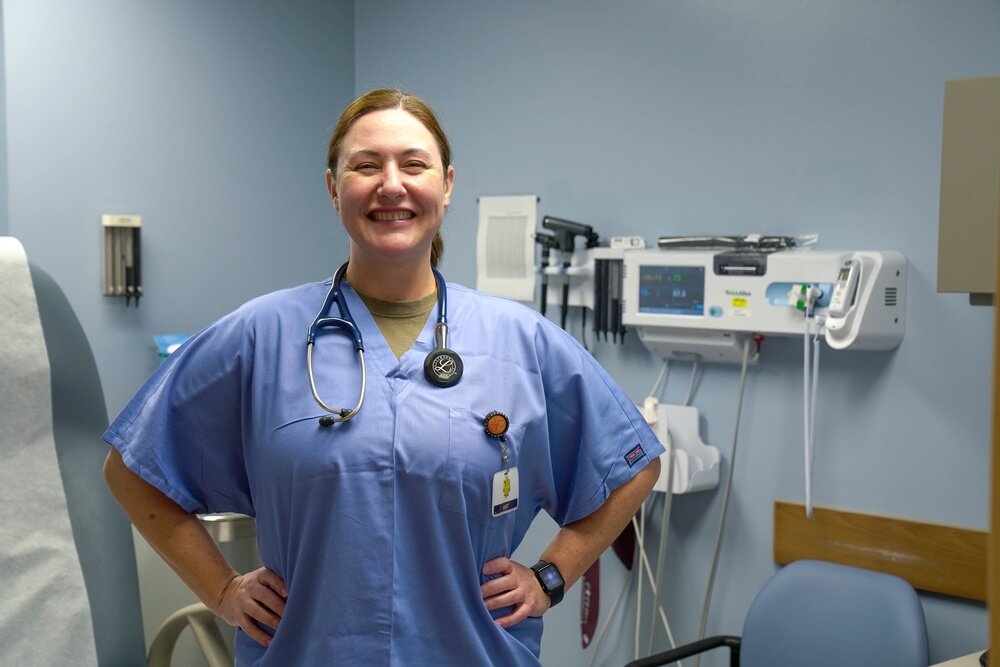Image Courtesy of Canva
As a Certified Nurse Assistant or CNA, you are responsible for providing essential care to patients. But did you know there is one type of Nursing Assistant that provides an even more noteworthy service? Restorative CNAs or Restorative Nursing Assistants use specialized techniques to maintain and improve each patient's abilities and functions - making them invaluable members of any medical team.
What does Restorative Nursing Mean?
In nursing settings, the term ‘restorative’ means to help a patient rehab to a daily level of independence. Although this looks different for each patient, restorative care establishes a baseline for a patient’s daily activities and abilities to their highest level of function. This includes well-being of both physical and mental capabilities. These patients can in a variety of healthcare settings, from elderly resident homes to post-surgery recovery in hospitals.
A Restorative Nursing Assistant is an important healthcare team member. They provide patient care, including assisting with hygiene needs and emotional support. Through the implementation of restorative techniques, they help patients maintain an optimal level of function so they can return to their daily tasks with minimal impairment or disability.
Image Courtesy of Canva
Restorative CNAs monitor patient conditions, report any changes to the medical staff and collaborate with other healthcare personnel to ensure progress. Their role is essential for a patient's rehabilitation and helps build trust and create a peaceful environment that allows healing and recovery.
This specialty is known as multiple titles such as Restorative CNA, Restorative Nursing Assistant, Restorative/Certified Nursing Assistant, Restorative Nursing Aide, Restorative Nurse Aide, Restorative Aide, and RNA.
RNA Training
All Restorative Nursing Aides are first Certified Nursing Assistants. CNAs can take additional CNA classes, workshops, or have hands-on experience to become Restorative CNAs with specialties in caring for patients in a restorative setting.
Restorative CNAs must complete approved training programs to become Certified Nursing Assistants. These programs typically involve classroom instruction, lab work, and clinical experience at healthcare facilities such as hospitals, nursing homes, or long-term care facilities. In some cases, additional training may be required if the individual wishes to specialize in restorative care techniques.
Most states also require that CNAs be certified through an accredited program before they are allowed to take on roles within healthcare settings involving patient contact. Various certifications are available at colleges and universities throughout the country to provide the skills required for these roles. These qualifications cover topics such as:
Image Courtesy of Canva
● Patient care, safety, and fostering healthy behavioral patterns;
● Assessments aligned with injured or disabled residents;
● Use of adaptive equipment;
● Implementation of contractures management strategies;
● Specialty skills for gait training or wheelchair positioning.
You can find CNA classes to become a Restorative Nursing Assistant by using our Free CNA School Finder. Just enter your zip code to find online CNA classes or CNA schools near you. You can also get more information about CNA requirements in your specific state by using our CNA Location Guide.
RNA Skills
Restorative Nursing Assistants must be highly skilled in providing care related to helping patients become as independent as possible. This means having an in-depth knowledge of medical procedures and understanding how to best help facilitate these activities for those who need extra assistance.
Additionally, the job requires attention to detail and a great sense of empathy to respond appropriately to each patient’s individual needs. It also helps if you have strong organizational abilities and can anticipate potential challenges that could arise during regular duties. Being able to multi-task and prioritize tasks are essential qualities for someone in this position, as they are often responsible for countless tasks at once.
In short, working as a Restorative CNA requires specific qualities beyond basic medical knowledge, such as strong interpersonal skills and exceptional problem-solving capabilities.
Types of Patients Benefit from the Services
Patients who have experienced impairments due to age-related illnesses or injuries are most likely to benefit from the services a Restorative Nursing Assistant provides. Such individuals may suffer from arthritis, stroke, or other degenerative conditions that make it difficult for them to perform activities of daily living independently. Additionally, those recovering from surgery or chronic diseases can benefit from the specialized care provided by restorative CNAs.
How Does a Restorative CNA's Work Help Enhance Patient Care?
Image Courtesy of Canva
Restorative care is essential to any quality healthcare program since it helps individuals achieve maximum independence and functionality despite impairments caused by age-related illness or injury.
By providing physical assistance with activities of daily living and medical tasks such as taking vital signs and administering medications, Restorative CNAs give patients greater control over their well-being while simultaneously helping them remain independent for more extended periods than they would otherwise be able to do without such support services.
Additionally, through rehabilitation exercises and adaptive devices such as wheelchairs or walkers, CNAs can help patients reach their highest potential capabilities despite physical limitations imposed by age or illness.
Importance of Restorative Care in Nursing
Through various treatments such as physical therapy, occupational therapy, speech-language therapy, and other interventions, Restorative Nurses can play an essential role in helping patients adapt to their new life situations and maximize their potential for optimal functioning. The nursing team can develop strategies such as exercise regimens and activity modifications to support healing while promoting patient independence.
Restorative Care Nurses focus on creating opportunities for patients to reach their highest level of potential in daily activities and have the skills needed to handle future challenges. Through restorative care techniques and technologies, nurses are vital partners in improving patients' quality of life which is essential for individuals who have experienced an unexpected illness or injury.
The Future of Restorative CNA Jobs
Restorative Nursing Assistant positions remain important in providing care to patients in hospitals, nursing homes, and other important healthcare industries. In the future, this role will expand beyond traditional roles such as helping with personal hygiene, feeding, and transferring patients.
New technologies are paving the way for CNAs to become more involved in assessing and monitoring patient health. With the help of interactive, handheld devices and sophisticated tracking equipment, Nursing Assistants will be able to identify a range of patient issues quickly and accurately. This could include recognizing signs of dehydration or crucial changes in blood pressure levels.
As Restorative CNA/Nursing Assistant jobs continue to become more focused on patient diagnosis and assessment, they will play an even more significant part in improving overall patient health outcomes.
Conclusion
Undoubtedly, the role of a Restorative CNA is vital and highly beneficial for those in need. It provides helpful and necessary care for those wanting to improve their quality of life and a way forward for CNAs to expand their knowledge, increase their satisfaction, and demonstrate the best care possible through meaningful relationships built on trust.
Furthermore, this type of position offers an invaluable service to clients, allowing them to develop the skills they need while feeling supported independently.
Restorative Nursing Assistants help people find a sense of empowerment and greater self-sufficiency. It is truly gratifying work that requires compassion, understanding, and patience to help patients reach their goals.
Taking on this kind of responsibility as a CNA is a great way to change the lives of individuals with disabilities or chronic illnesses.
Guest Writer Bio:
Lindsay Karny is an HR Professional and Certified Resume Writer at Resume 2023. With over five years of experience in both fields, she has helped individuals of all levels gain a competitive advantage when it comes to being considered for jobs.

































































